Test Jit's Detection: Code Samples and Targets
Test out Jit's detection capabilities using the code samples and test targets below.
Scan code for vulnerabilities (Python)
File name: test.py
import yaml
def exploitable_yaml_load(**kwargs):
"""
The string `!!python/object/new:os.system` is a YAML tag that tells the parser
to create a new Python object by calling 'os.system' with 'echo EXPLOIT!' as its argument.
When using 'yaml.unsafe_load', this can lead to arbitrary command execution.
"""
yaml.unsafe_load("!!python/object/new:os.system [echo EXPLOIT!]", **kwargs)
Expected output:
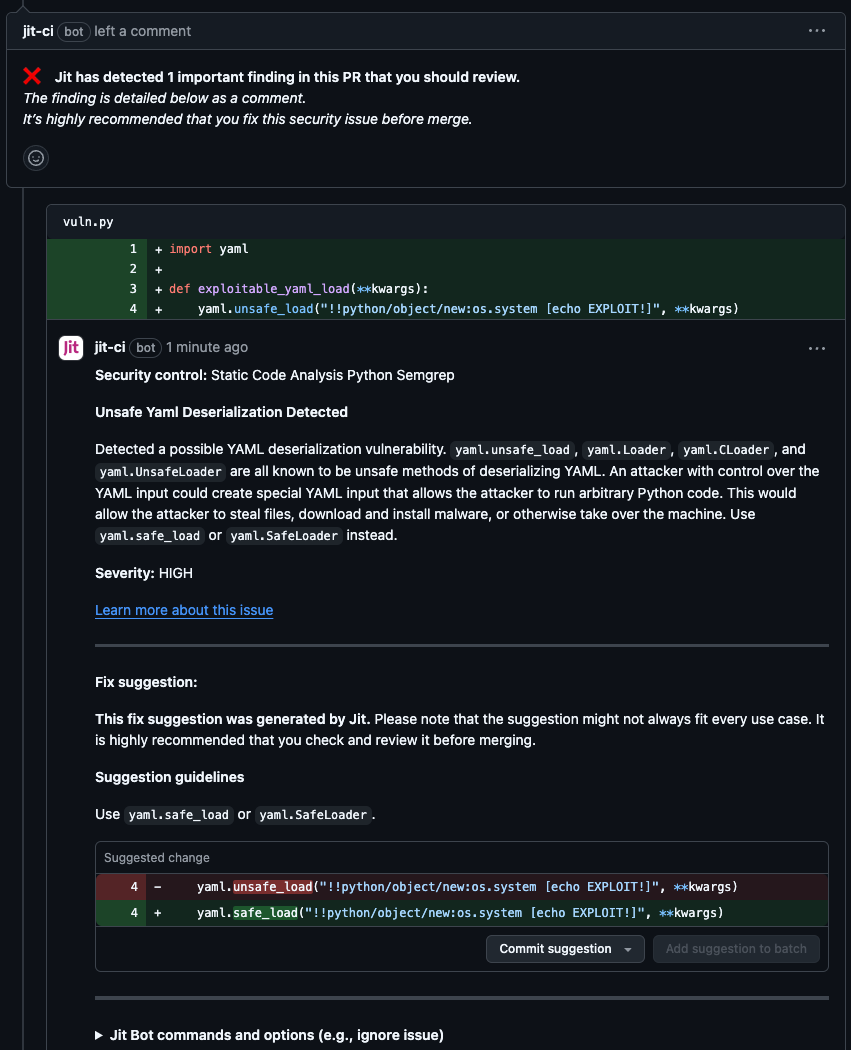
Scan code for vulnerabilities (Javascript)
File name: test.js
const { exec } = require('child_process');
const http = require('http');
const url = require('url');
http.createServer((req, res) => {
const query = url.parse(req.url, true).query;
const fileName = query.file;
// ⚠️ Vulnerability: User-controlled input passed to exec without sanitization
exec(`cat ${fileName}`, (err, stdout, stderr) => {
if (err) {
res.writeHead(500);
res.end(`Error: ${stderr}`);
return;
}
res.writeHead(200);
res.end(stdout);
});
}).listen(3000);
console.log('Server running on http://localhost:3000');
Expected output:
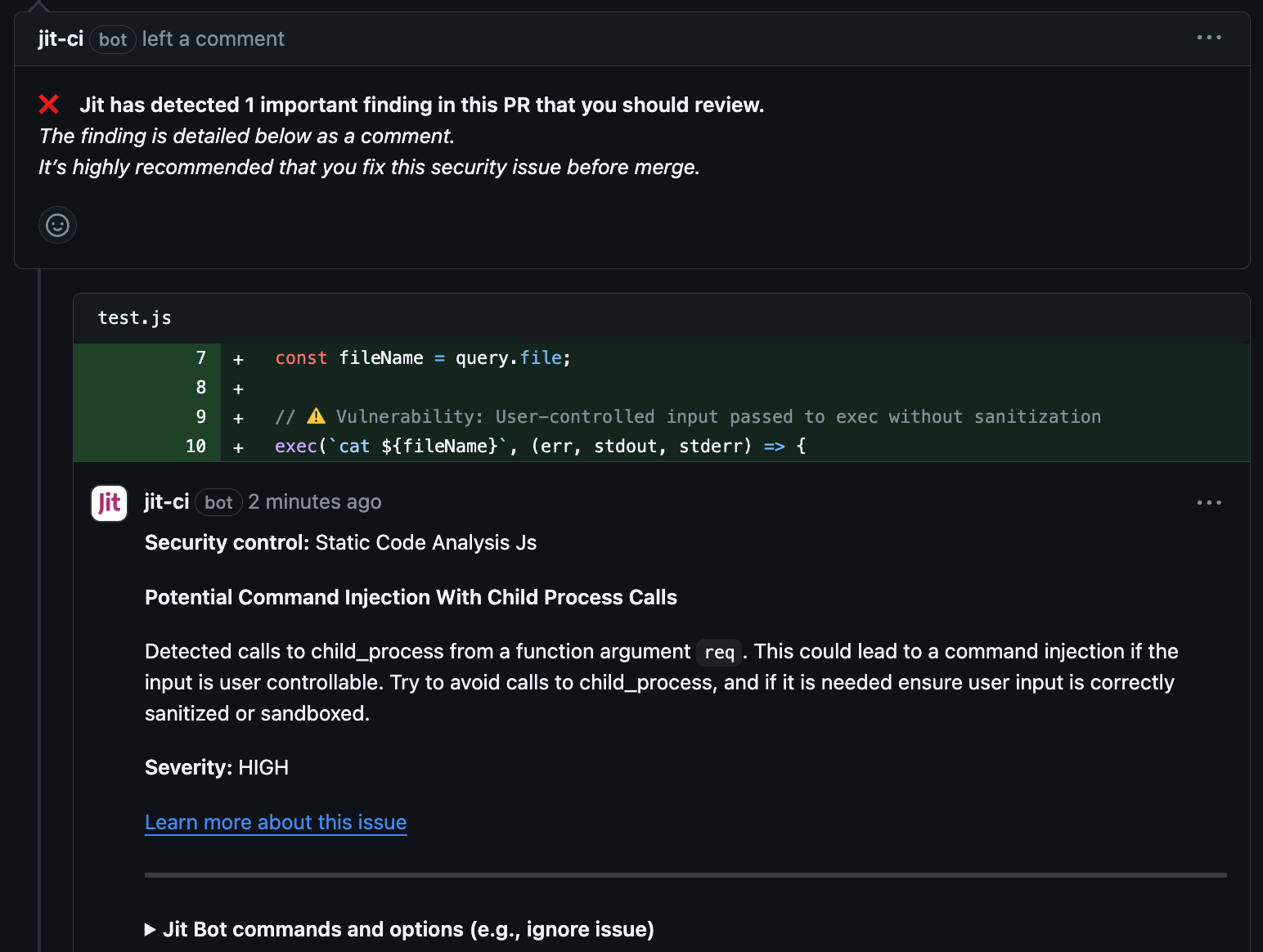
Scan code for vulnerabilities (GO)
File name: test.go
package testutil // import "github.com/docker/docker/testutil"
import "math/rand"
// GenerateRandomAlphaOnlyString generates an alphabetical random string with length n.
func GenerateRandomAlphaOnlyString(n int) string {
// make a really long string
letters := []byte("abcdefghijklmnopqrstuvwxyzABCDEFGHIJKLMNOPQRSTUVWXYZ")
b := make([]byte, n)
for i := range b {
b[i] = letters[rand.Intn(len(letters))] //nolint: gosec // G404: Use of weak random number generator (math/rand instead of crypto/rand)
}
return string(b)
}
Expected output:
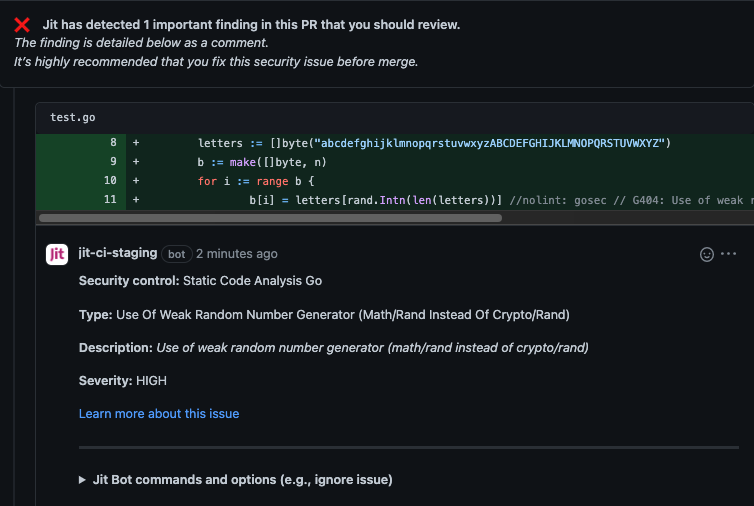
Scan code dependencies for vulnerabilities (Node)
File name: package.json
{
"name": "dependencygoat2",
"version": "1.0.0",
"description": "",
"main": "index.js",
"scripts": {
"test": "echo \"Error: no test specified\" && exit 1"
},
"author": "",
"license": "ISC",
"dependencies": {
"minimist": "0.0.8"
}
}
Expected output:
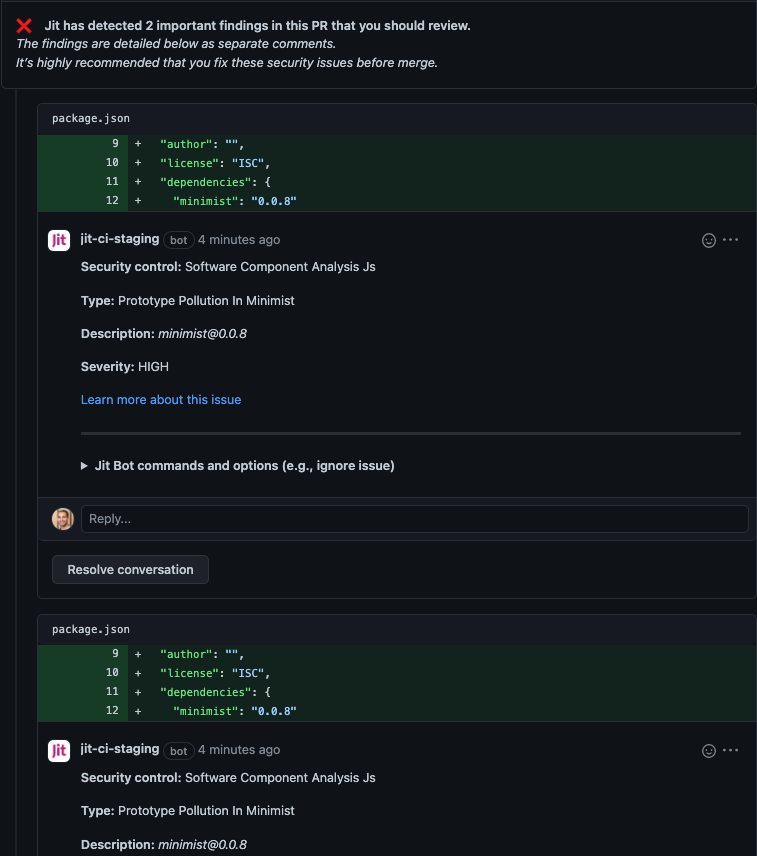
Scan code dependencies for vulnerabilities (Python)
File name: requirements.txt
requests==2.18.2
urllib3==1.26.4
Expected output:
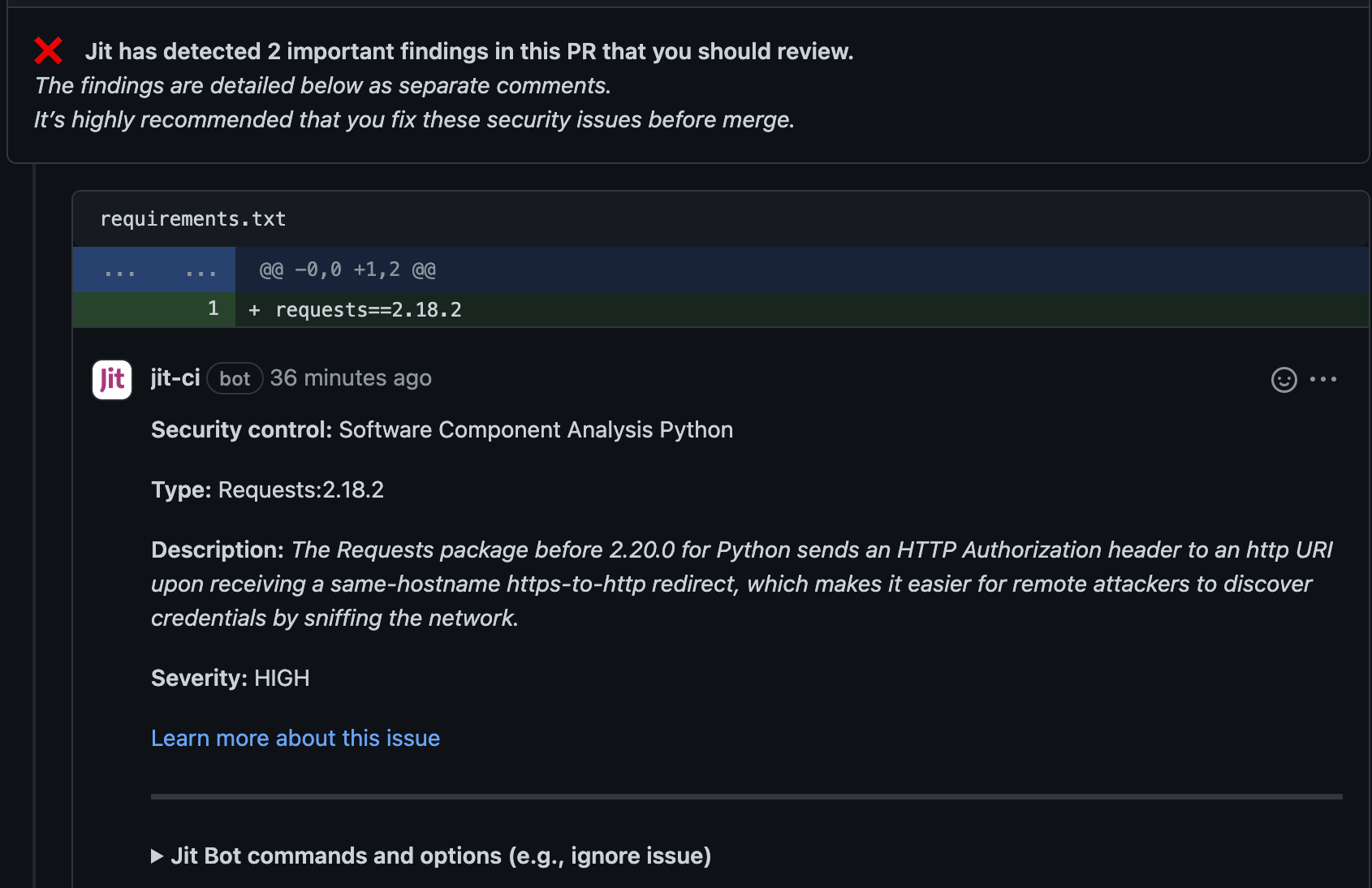
Scan code for hard-coded secrets (Multi-languages)
File name: secret.txt
MY_AWS_SECRET="AKIAIOSFODNN7EXAMPLE"
Expected output:
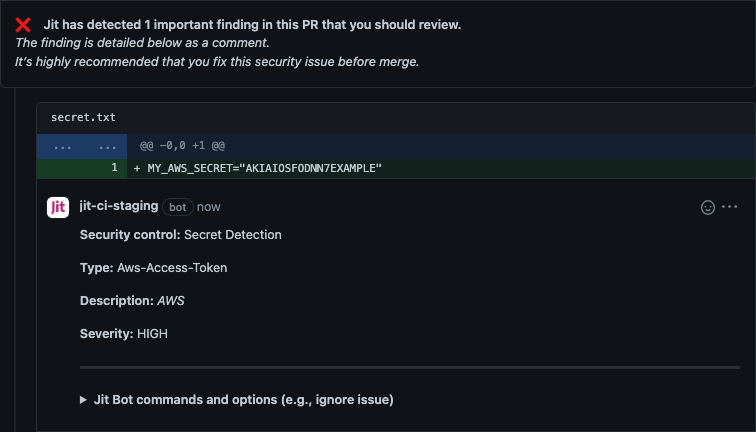
Scan IaC for static misconfigurations
S3 Bucket ACL allows Read or Write to all users (Terraform)
File name: test.tf
resource "aws_s3_bucket" "positive1" {
bucket = "my-tf-test-bucket"
acl = "public-read"
tags = {
Name = "My bucket"
Environment = "Dev"
}
versioning {
enabled = true
}
}
Expected output:
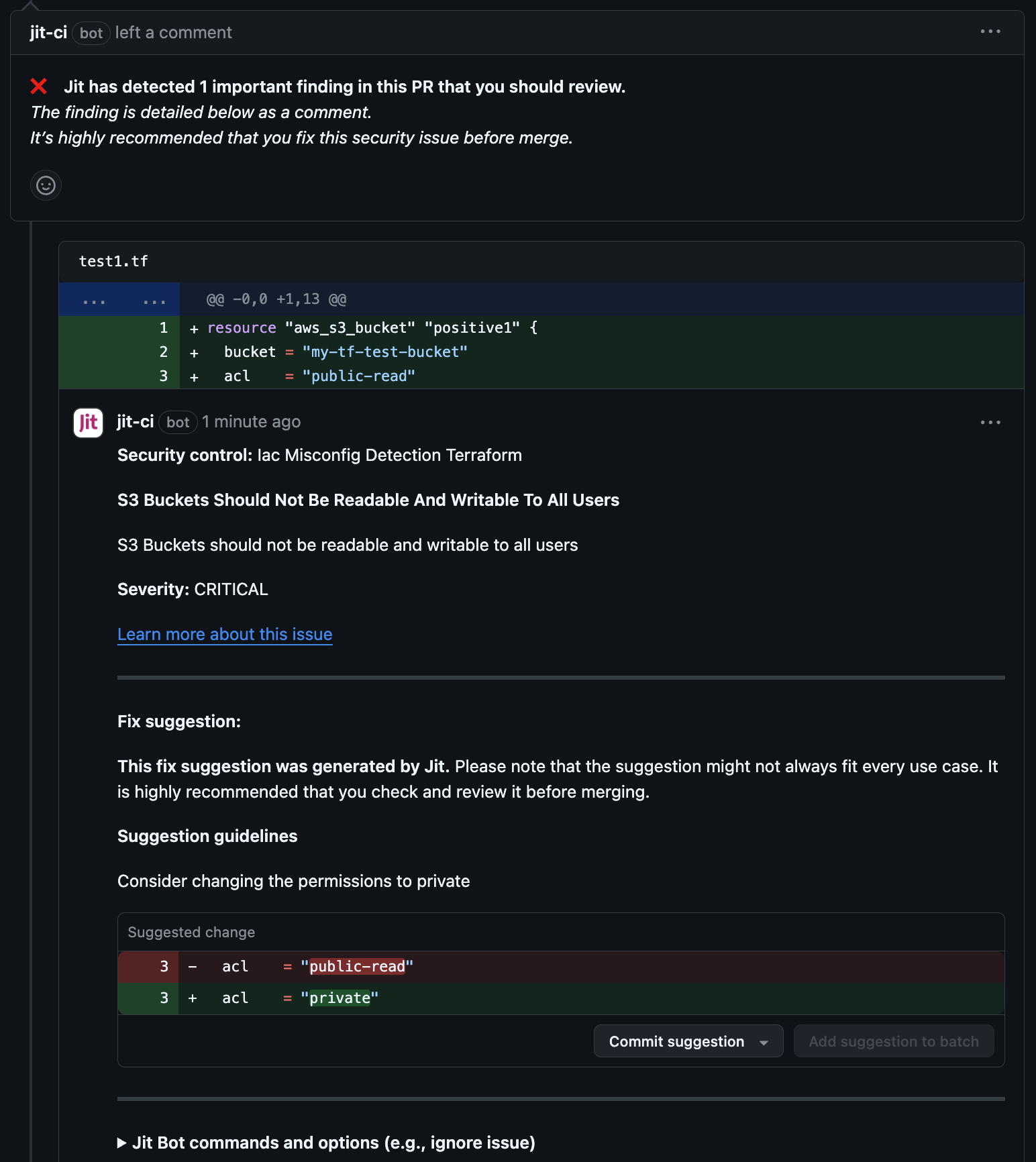
ECR Repository Is Publicly Accessible (CloudFormation)
File Name: test.json
{
"Resources": {
"MyRepository4": {
"Type": "AWS::ECR::Repository",
"Properties": {
"RepositoryName": "test-repository",
"RepositoryPolicyText": {
"Version": "2008-10-17",
"Statement": [
{
"Sid": "AllowPushPull",
"Effect": "Allow",
"Principal": "*",
"Action": [
"ecr:GetDownloadUrlForLayer",
"ecr:BatchGetImage",
"ecr:BatchCheckLayerAvailability",
"ecr:PutImage",
"ecr:InitiateLayerUpload",
"ecr:UploadLayerPart",
"ecr:CompleteLayerUpload"
]
}
]
}
}
}
}
}
Expected output:
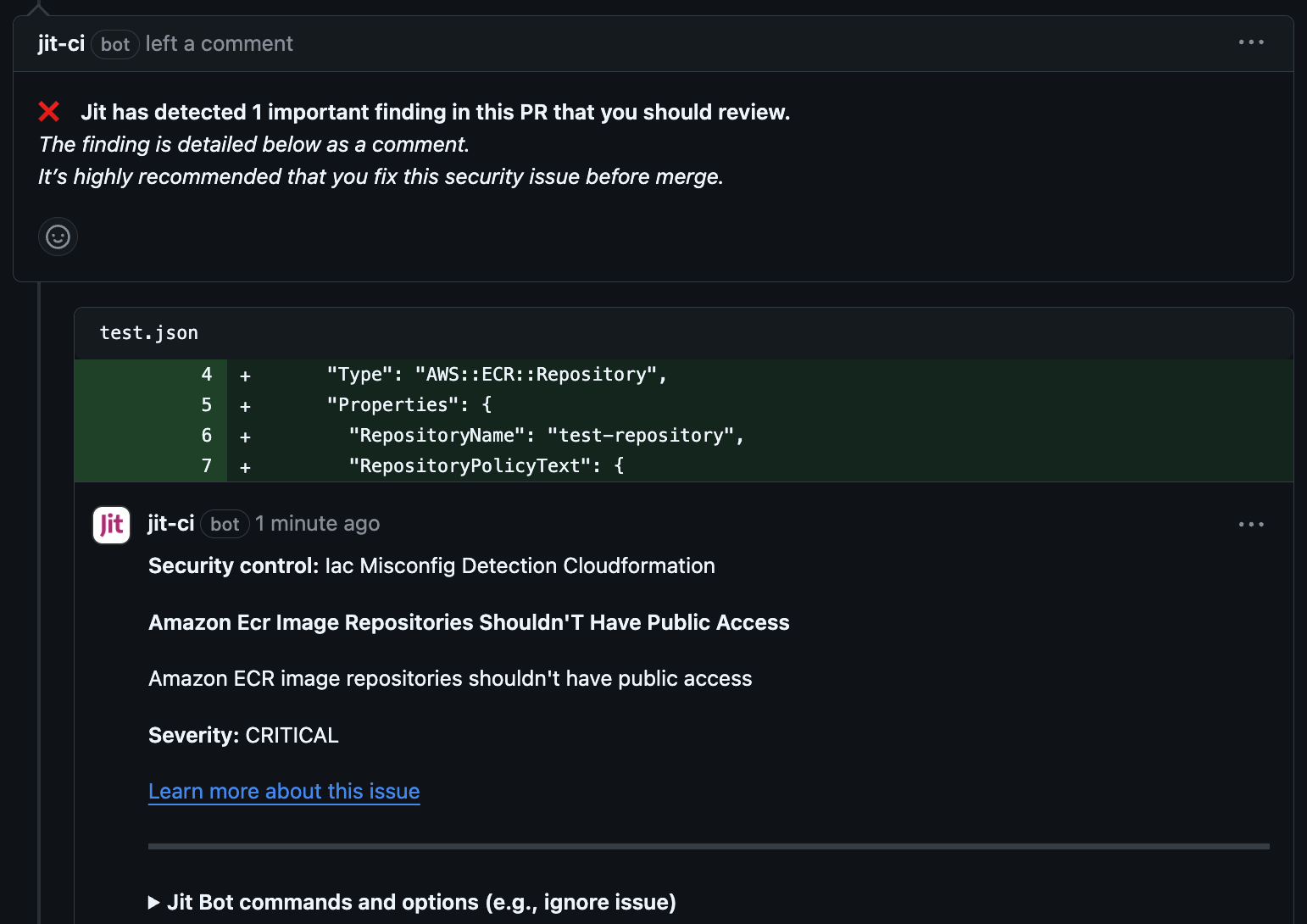
Run a Web Application Scanner / Ensure Your APIs are Secure (ZAP-based security requirements)
Use the following tests to verify that your security requirements based on ZAP (which include Run a Web Application Scanner and Ensure Your APIs are Secure) are functional.
Test target: Google Firing Range
https://www.zaproxy.org/docs/scans/firingrange/
Test target: Google Security Crawl Maze
https://www.zaproxy.org/docs/scans/crawlmaze/
Test target: OWASP Benchmark
https://www.zaproxy.org/docs/scans/benchmark/
Test target: Websites Vulnerable to SSTI
https://www.zaproxy.org/docs/scans/ssti/
Test target: Yahoo Webseclab
https://www.zaproxy.org/docs/scans/webseclab/
name: Sync Jit Teams
on:
schedule:
- cron: "0 3 * * *"
workflow_dispatch:
jobs:
sync-teams:
runs-on: ubuntu-latest
steps:
- name: Check out code
uses: actions/checkout@v3
- name: Call action
uses: jitsecurity/[email protected]
with:
JIT_CLIENT_ID: ${{ secrets.JIT_CLIENT_ID }}
JIT_CLIENT_SECRET: ${{ secrets.JIT_CLIENT_SECRET }}
ORGANIZATION_NAME: ${{ github.repository_owner }}
GITHUB_API_TOKEN: ${{ secrets.MY_GITHUB_API_TOKEN }}
TEAM_WILDCARD_TO_EXCLUDE: "*dev*, *test*"
Updated 10 months ago
